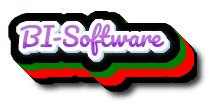In today’s fast-paced business world, customer relationship management (CRM) software has become an essential tool for companies of all sizes. A well-implemented CRM system can help organizations streamline their sales, marketing, and customer service efforts, leading to increased efficiency, productivity, and profitability. However, with so many CRM software options available, choosing the right one can be a daunting task. In this article, we’ll delve into the world of CRM software, exploring its benefits, features, and functionalities, as well as providing tips and guidelines for analyzing and selecting the best CRM solution for your business.
<img src=”https://qrsolutions.in/wp-content/uploads/2021/02/Sec3_CRM-1-scaled.jpeg” alt=”The Ultimate Guide to Analyzing CRM Software: Unlocking the Power of Customer Relationship Management” />
What is CRM Software?
CRM software is a set of tools designed to manage and automate customer interactions, sales, and marketing processes. It enables businesses to store customer data, track interactions, and analyze customer behavior, providing valuable insights that can inform sales, marketing, and customer service strategies. CRM software typically includes features such as contact management, sales forecasting, lead tracking, and customer service ticketing.
Benefits of CRM Software
The benefits of CRM software are numerous and well-documented. Some of the most significant advantages include:
- Improved Customer Satisfaction: CRM software helps businesses provide better customer service by enabling them to respond quickly and effectively to customer inquiries and issues.
- Increased Sales: By providing sales teams with real-time customer data and insights, CRM software can help businesses identify new sales opportunities and close more deals.
- Enhanced Marketing Efficiency: CRM software enables marketers to target specific customer segments, personalize marketing campaigns, and track the effectiveness of their efforts.
- Increased Productivity: CRM software automates many routine tasks, freeing up staff to focus on higher-value activities such as sales, marketing, and customer service.
- Better Decision-Making: CRM software provides businesses with valuable insights and analytics, enabling them to make data-driven decisions and drive business growth.
Key Features of CRM Software
When evaluating CRM software, there are several key features to consider. These include:
- Contact Management: The ability to store and manage customer contact information, including names, addresses, phone numbers, and email addresses.
- Sales Forecasting: Tools that enable sales teams to predict future sales performance and identify new sales opportunities.
- Lead Tracking: Features that allow businesses to track and manage leads, from initial contact to conversion.
- Customer Service Ticketing: Tools that enable customer service teams to manage customer inquiries and issues.
- Reporting and Analytics: Features that provide businesses with insights and analytics on customer behavior, sales performance, and marketing effectiveness.
- Integration with Other Systems: The ability to integrate CRM software with other business systems, such as marketing automation, accounting, and ERP systems.
Analysis of CRM Software
When analyzing CRM software, there are several factors to consider. These include:
- Ease of Use: How easy is the software to use, and how quickly can users get up and running?
- Customization: Can the software be customized to meet the specific needs of your business?
- Scalability: Can the software grow and evolve with your business?
- Integration: How easily does the software integrate with other business systems?
- Support and Training: What level of support and training is provided by the vendor?
- Cost: What is the total cost of ownership, including licensing fees, implementation costs, and ongoing support and maintenance costs?
Popular CRM Software Options
There are many CRM software options available, each with its own strengths and weaknesses. Some popular options include:
- Salesforce: A cloud-based CRM platform that offers a range of features and functionalities.
- HubSpot: An all-in-one CRM, marketing, and sales platform that provides a range of tools and integrations.
- Zoho CRM: A cloud-based CRM platform that offers a range of features and functionalities at an affordable price.
- Microsoft Dynamics 365: A cloud-based CRM platform that integrates with other Microsoft business applications.
- Freshsales: A cloud-based CRM platform that offers a range of features and functionalities at an affordable price.
FAQs
- What is the difference between cloud-based and on-premise CRM software?
Cloud-based CRM software is hosted in the cloud and accessed via a web browser, while on-premise CRM software is installed and hosted on a company’s own servers. - How long does it take to implement CRM software?
The implementation time for CRM software can vary depending on the complexity of the system and the size of the business. On average, implementation can take anywhere from a few weeks to several months. - What is the cost of CRM software?
The cost of CRM software can vary widely, depending on the vendor, the number of users, and the features and functionalities required. On average, CRM software can cost anywhere from $10 to $100 per user per month. - Can CRM software be customized?
Yes, many CRM software options can be customized to meet the specific needs of a business. This can include custom fields, workflows, and integrations. - What is the return on investment (ROI) for CRM software?
The ROI for CRM software can be significant, with many businesses experiencing improved sales, increased customer satisfaction, and enhanced productivity.
Conclusion
In conclusion, CRM software is a powerful tool that can help businesses of all sizes streamline their sales, marketing, and customer service efforts. When analyzing CRM software, there are several key features and functionalities to consider, including contact management, sales forecasting, lead tracking, customer service ticketing, and reporting and analytics. By evaluating these factors and considering the specific needs of your business, you can choose a CRM software solution that drives business growth, improves customer satisfaction, and enhances productivity. Whether you’re a small business or a large enterprise, CRM software is an essential tool that can help you achieve your goals and stay ahead of the competition.
<h2>Closure</h2>
Thus, we hope this article has provided valuable insights into The Ultimate Guide to Analyzing CRM Software: Unlocking the Power of Customer Relationship Management. We hope you find this article informative and beneficial. See you in our next article!
